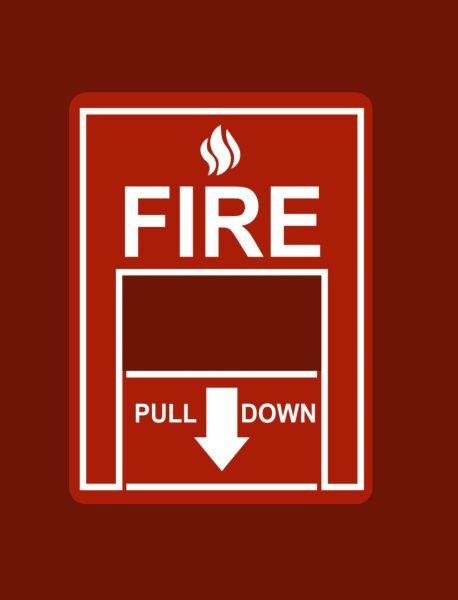
While fire alarms are simply a part of life in the residence halls, one dorm has already had at least six fire alarms this semester, most of which occurred in the middle of the night. Community advisors frequently remind students to be careful with electrical appliances and avoid prohibited items, yet accidents are inevitable, and sometimes the alarms are triggered for reasons unrelated to student activity.
“Normally we have one test drill per month, and that’s only in the middle of the day, and that’s only once a month, and we are in the second month of school. So that’s definitely not common to have six or more, and especially not in the middle of the night,” said Rachel Black, a community advisor at Parkhurst Hall.
Black explained that the triggers for these alarms have varied. Some were caused by residents’ activities, as something as simple as spraying an air freshener or using a hair straightener can set off the sensitive detectors. But other incidents had nothing to do with the students.
“This semester we had some [alarms] that weren’t even related to the students, it was just that there was an electrical problem with the fire alarms,” said Black.
Although Parkhurst Hall experienced excessive fire alarms, GCSU Facilities Management reported that the campus overall has not seen an unusual increase in alarms.
“Fire alarms can be triggered by a variety of factors, and this fall semester has seen a typical volume of activations,” said Michael Hejazi, the Director of Environmental Health and Safety & Fire Safety.
Hejazi noted that common culprits include burnt food, such as popcorn or macaroni and cheese cooked in a microwave without water, as well as accidental door openings by students, staff or contractors.
“Importantly, we have not experienced any actual fires in any of our residential facilities on either the Main or West campuses. Some alarms were also caused by condensation due to seasonal temperature shifts, which have since been addressed,” said Hejazi.
GCSU follows strict fire alarm and safety standards, including statewide fire codes, University System of Georgia design standards and National Fire Protection Association’s Life Safety Code. These protocols cover everything from corridor and room smoke detectors to emergency lighting, exit signage, sprinkler systems and accessible extinguishers.
“In addition to alarm systems, we provide fire extinguisher training for all housing community directors, conduct monthly fire extinguisher inspections and hold fire drills each semester,” said Hejazi.
University Housing also enforces GCSU-specific policies, such as bans on tampering with smoke detectors or fire equipment. Appliances like refrigerators and microwaves must be regulated, and many flammable materials are strictly prohibited.
According to the Georgia College University Housing and Residence Life Policy Handbook, “Because of the danger presented by open flames, candles (with or without wicks) and such items are not permitted in student rooms/apartments and, if present, will be confiscated.”
While there haven’t been any actual fires in the residence halls this semester, frequent false alarms pose their own risk in that students may become desensitized and ignore the alarms in an emergency.
“I had students ask me if they should actually come down or not after the fourth or fifth one, if they had to continue to keep coming down. I had to tell them, yes, if there’s a fire alarm you still have to exit the building,” said Black.
Now that the detector issue has been fixed, Black and other community advisors have had to remind students that alarms must always be taken seriously – because next time, the threat could be real.

